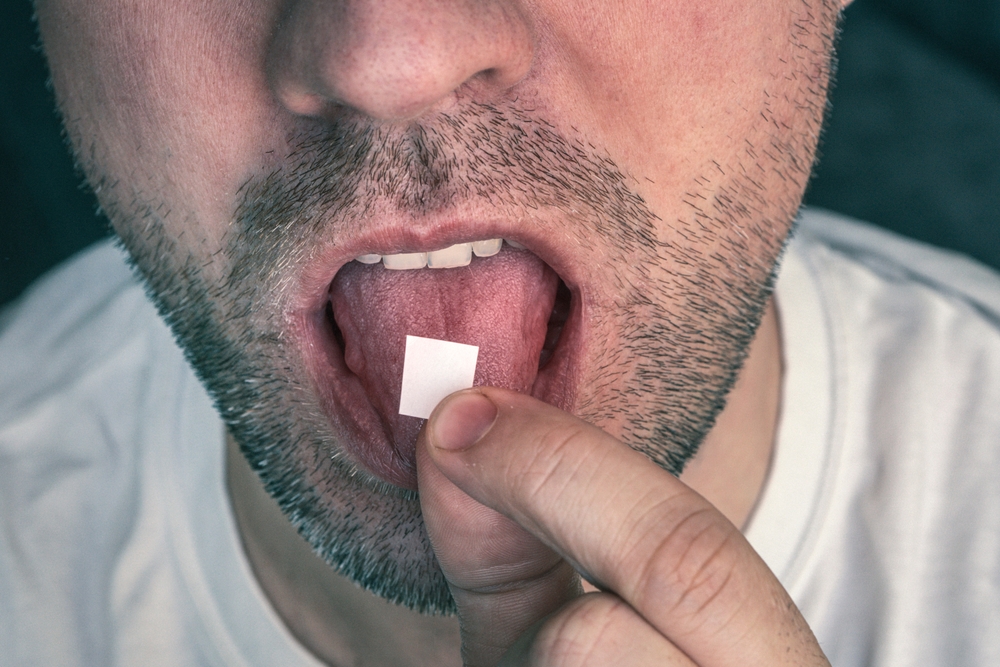Last Updated:
August 7th, 2025

Suffering from an addiction can leave a deep imprint on your body and mind. You may be wondering if the effects left on your body by addiction are indelible, or if the damage can be reversed as you turn your back on substance addiction.
The truth is hopeful. Your body has a remarkable ability to heal, if you’re in the right place, with the right people.
Is the damage caused by addiction reversible?
When you’ve been using drugs or alcohol for a long time, it’s natural to wonder: Is it too late for my body to bounce back? The answer is often more hopeful than many people first realise.
Alcohol and drug addiction certainly has the capacity to cause serious damage throughout the body and mind. Yet it is easy to underestimate the propensity of the human body to heal, as long as it is being treated well.
Your liver, brain, heart and skin, which are all commonly damaged through substance abuse, all have regenerative properties that allow for healing once substance use stops. Even in more serious cases, some level of improvement is possible with the right treatment and care.
However, the window for recovery cannot be held open indefinitely. The longer a harmful substance is used, the more likely it is that damage becomes lasting. This is why early intervention is so crucial, not just for saving your life before it spirals, but for preserving the baseline quality of life you have right now, as a minimum.
The body’s capacity to reverse the damage caused by addiction is unique to each person, so it’s important to speak with a medical professional to understand how much you can heal.
What are the most common health effects found in addiction?
Alcohol and drug addiction will take a serious toll on both the body and mind. Substance abuse affects nearly every system in the body, with effects that vary depending on the substance, the method of use and the amount of time spent using. It may benefit us to distinguish physical and psychological effects, as both are treated in unique ways in the recovery process:
- Heart and circulation: Stimulants like cocaine and meth can raise heart rate and blood pressure, while depressants like alcohol can slow heart function and impair blood flow.
- Respiratory system: Smoking or inhaling substances can irritate the lungs and airways, leading to shortness of breath or chest pain.
- Gastrointestinal upset: Nausea, vomiting, diarrhoea, and stomach cramps are common after heavy drinking or drug use.
- Sleep disruption: Substances often interfere with natural sleep cycles, resulting in insomnia or broken sleep, which in turn affects mood and energy levels.
Even if these issues seem only temporary, or only apparent when you take the drug, they may be signs that your body is struggling under the toxic influences. Frequent exposure will make longer-term damage more likely.
- Liver disease: There will likely be strains placed on your liver, including liver diseases like “fatty liver,” hepatitis, and cirrhosis, especially from alcohol or combined alcohol/paracetamol use.
- Heart issues: These can include cardiomyopathy, arrhythmias and an increased risk of stroke or heart attack.
- Lung damage: Damage to the lungs may involve chronic bronchitis or increased susceptibility to pneumonia from smoking substances.
- Malnutrition and weakened immunity: Drug and alcohol addictions often have deleterious effects on healthy eating and can impair the way your body absorbs nutrients.
Many of these effects will begin to improve in early to mid-recovery, but some, like scar tissue in the liver, may not fully reverse.
- Chronic stress and anxiety: These two symptoms are tragically common in people striving to recover. Both can result in physical impairments like straining your cardiovascular and immune system.
- Depression: You may think depression’s effects reside only in the mind, yet it can affect your appetite, sleep, motivation for self-care and willingness to seek the help you need.
- Cognitive impairments: Many impairments can happen in the brain, such as memory loss and poor decision-making. This may hinder a person’s ability to choose to stop or delay seeking treatment.
- Social isolation: Finally, a person struggling with addiction may commonly withdraw socially, stepping away from friends, family and people with their best interests at heart. This reduces accountability and access to support.
When mental and physical well-being decline together, recovery becomes more urgent, but also more promising. Professional treatment providers understand the importance of addressing both your mind and body, as the key to reversing the damage inherent to addiction.
Is there some damage that might not fully heal?
Many of the body’s critical systems will show remarkable recovery once substance use is removed. However, it’s important to keep in mind that not all damage can be reversed. Some types of damage are structural, meaning the tissue or organ itself has undergone lasting change. Some examples include:
- Cirrhosis of the liver: Cirrhosis damage generally cannot be undone. Even though your liver is highly regenerative, once fibrotic tissue replaces healthy liver cells, that damage is usually permanent.
- Brain atrophy: Sometimes called “cerebral atrophy,” this refers to the loss of neurons and connections between neurons in the brain. This may be particularly prevalent in older adults or those with a prolonged history of heavy drinking.
- Cardiac damage: Repeated use of drugs like stimulants can cause conditions like an enlarged heart or heart muscle scarring, which may be irreversible.
There are also neurological impairments that may only partially recover after cessation. Executive functions will likely improve with detox and therapy, but not disappear entirely.
How does professional recovery support damage reversal?
When you’ve been through the physical and emotional toll of addiction, trying to rebuild your health without support will feel like seeking a safe harbour in a tempestuous storm. However, your recovery is never hopeless. Professional recovery becomes a shining beacon, bringing you structured, science-backed care to deliver the healing your body needs.
Where can I get help for addiction recovery?
The damage caused by addiction can feel overwhelming, but healing is possible and may be closer than you think. No matter how far things have gone, the human body and mind are capable of extraordinary repair when given the right support.
At UKAT, we understand the myriad ways addiction can impair your health. Our rehab programmes offer expert-led detox and evidence-based therapy to restore your strength, from the inside out. If you feel like you’ve lost yourself, our compassionate team is here to help you rebuild.
You don’t have to carry the weight alone. Reach out to UKAT today and let us guide you towards a healthier, more hopeful tomorrow.



